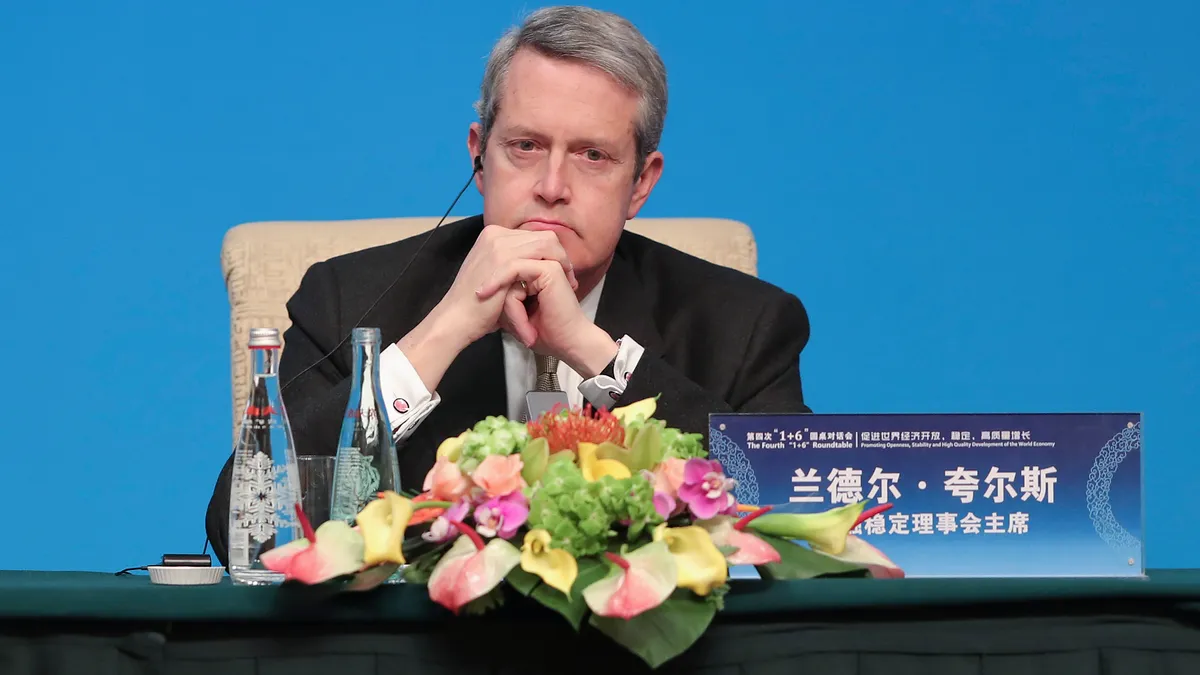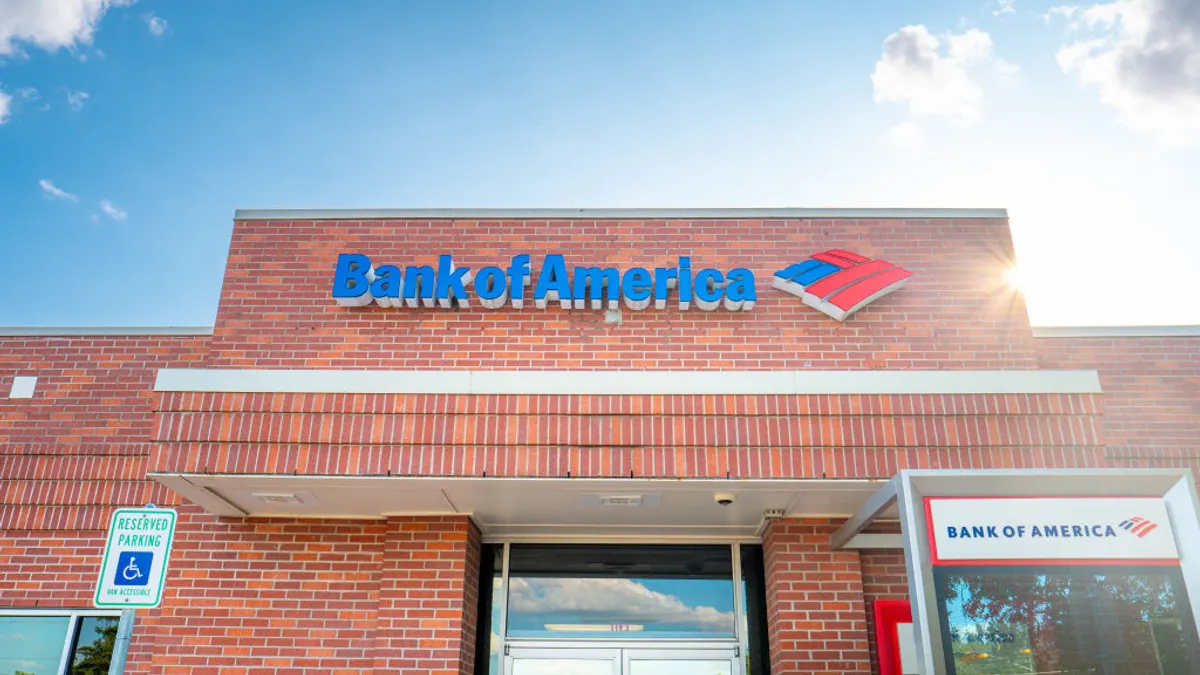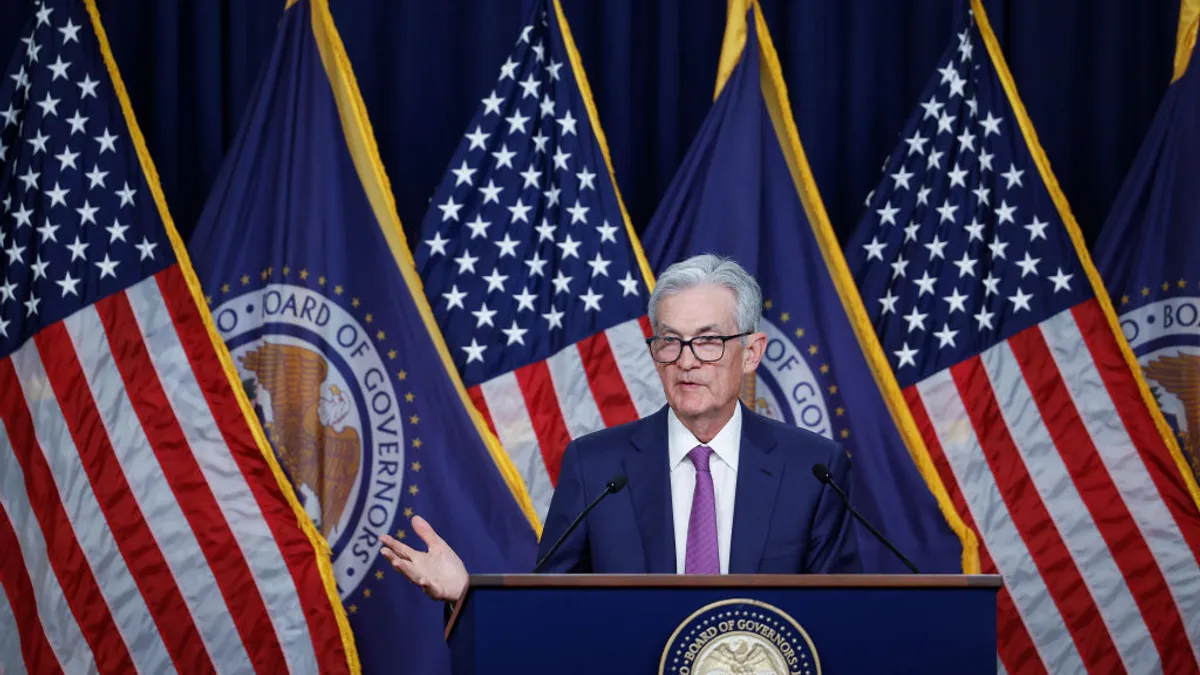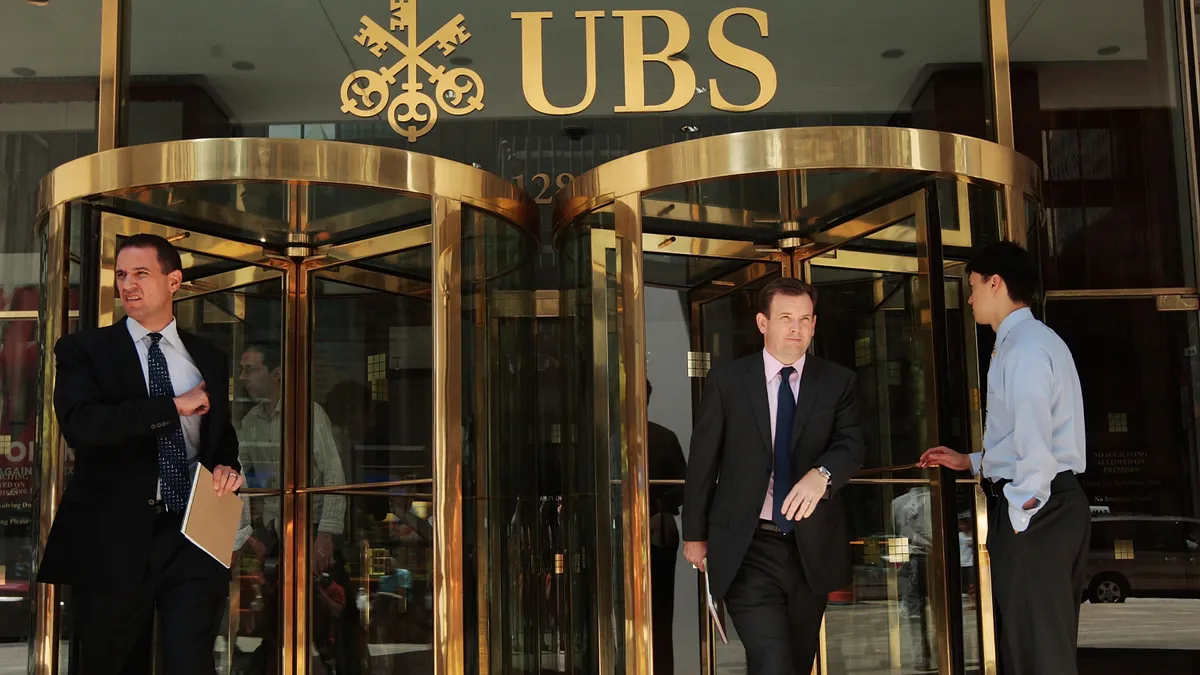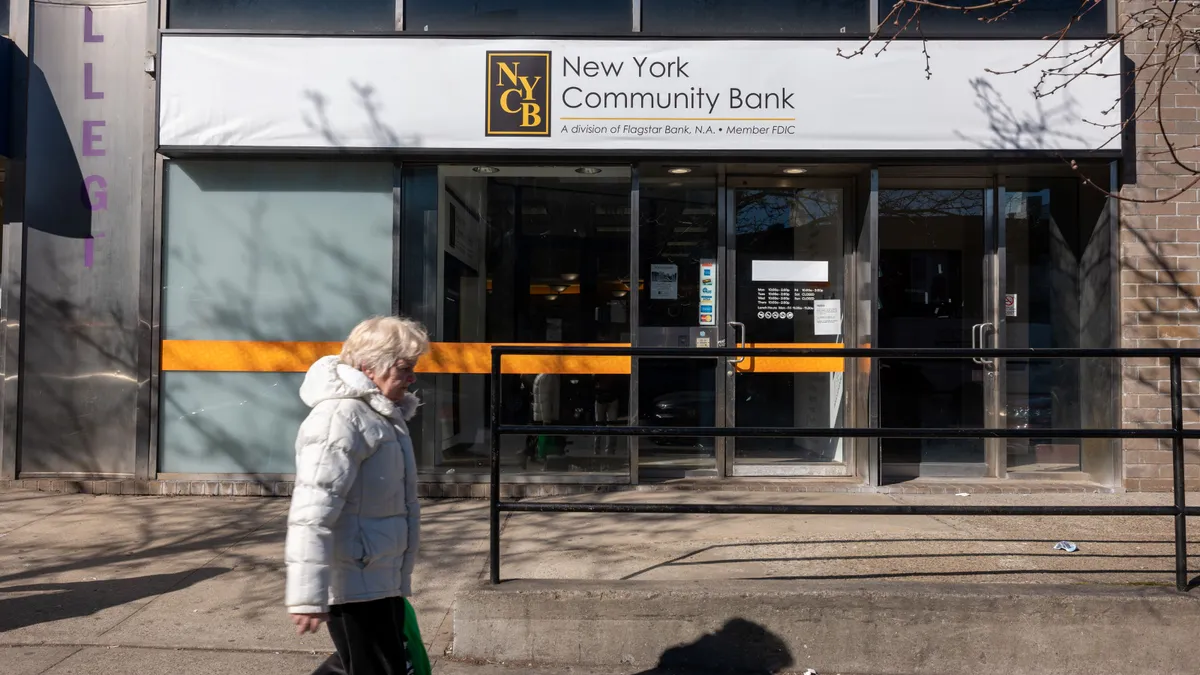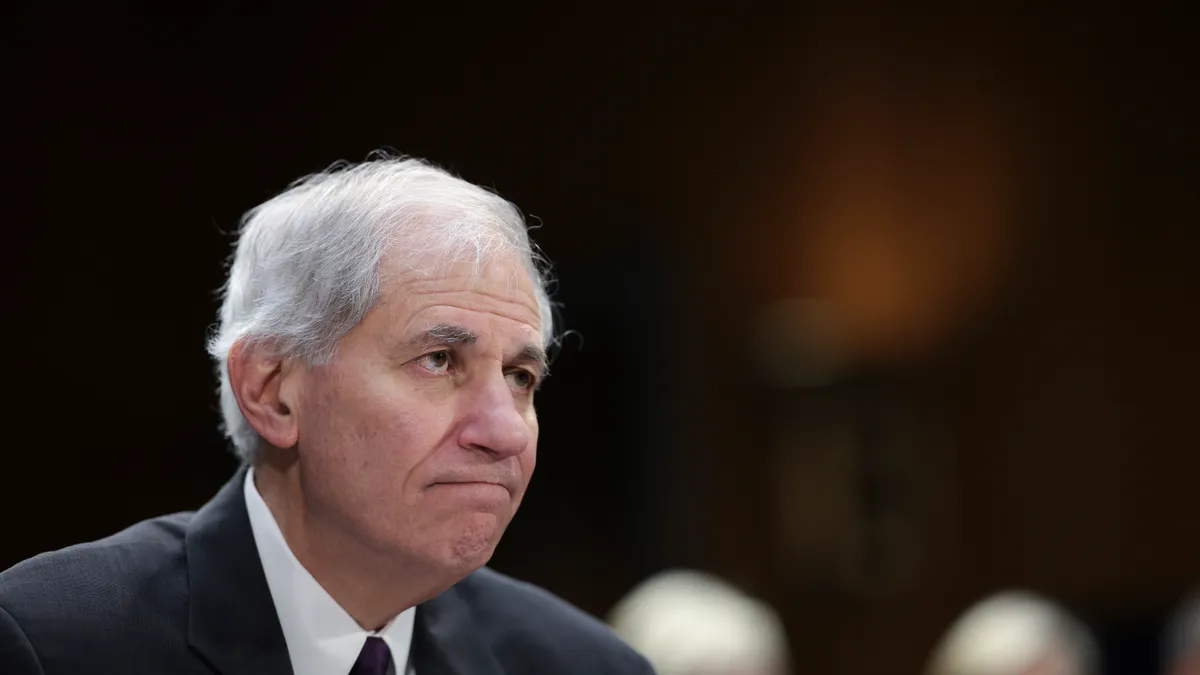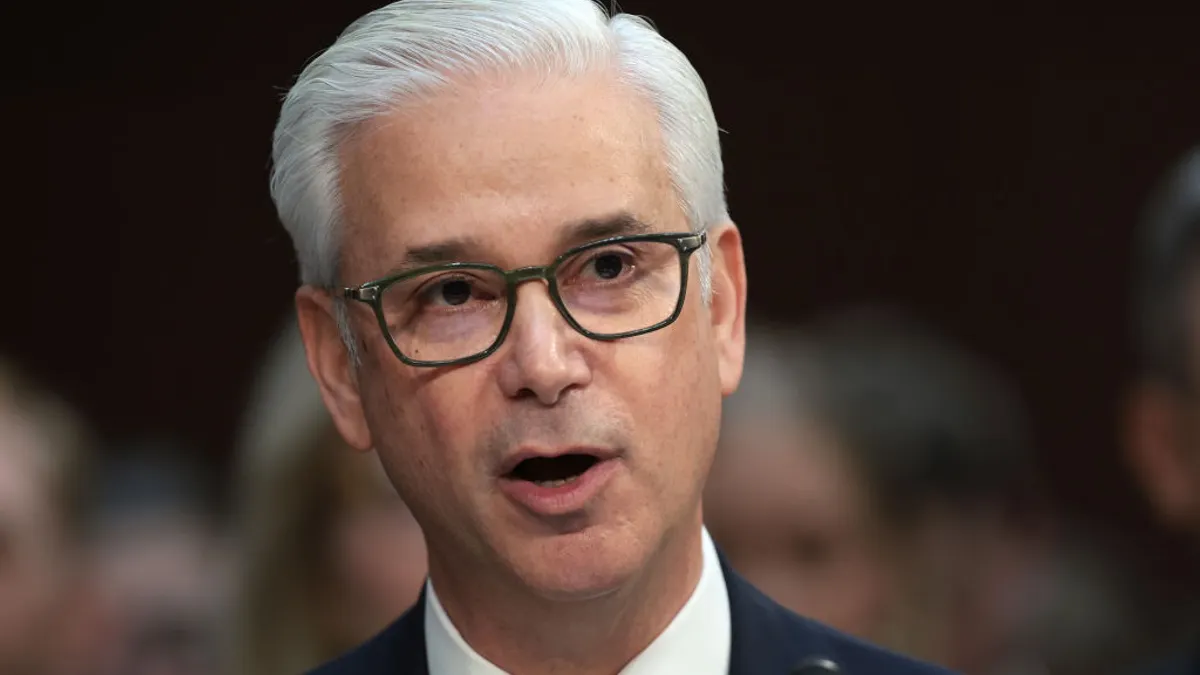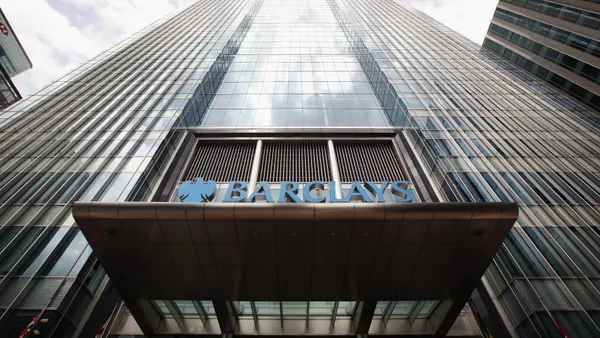The Federal Reserve’s Committee on Supervision and Regulation won’t have a designated chair after Wednesday, when Randal Quarles’ four-year term as vice chair for supervision expires, the central bank said Tuesday.
Rather, the committee — which consists of Quarles and Fed Governors Lael Brainard and Michelle Bowman — will meet “as necessary” and “on an unchaired basis,” a Fed spokesperson said in a statement seen by Bloomberg, Reuters and the Financial Times.
Under that setup, any rule-writing or major policy changes would need to have “broad consensus” among the panel’s members before advancing to the full board — a prospect that’s dim considering the ideological differences dividing Quarles and Brainard, the Fed board’s sole Democrat.
President Joe Biden has yet to nominate a candidate for Fed vice chairman for supervision, a role that requires Senate confirmation. And his lack of action there may hint that he’s undecided over leadership at the Fed as a whole.
Jerome Powell’s term as Fed chair expires in February, and Biden has said he would decide this fall whether to renominate him. A White House official Tuesday told The Wall Street Journal that Biden remains engaged with his senior economic team over personnel matters and “will make decisions in a thoughtful matter.”
Sen. Elizabeth Warren, D-MA, last month became the highest-profile lawmaker to oppose Powell’s renomination, telling the central bank chief during a Senate Banking Committee hearing Sept. 28 that he has “acted to make our banking system less safe, and that makes you a dangerous man to head up the Fed.”
Warren added that Powell “failed as a leader” after financial disclosures found that Fed Vice Chair Richard Clarida moved between $1 million and $5 million from a bond fund into stock funds on Feb. 27, 2020 — a day before Powell issued a statement signaling the Fed might cut interest rates.
Similar financial disclosures revealed last month that two regional Fed presidents — Eric Rosengren of Boston and Robert Kaplan of Dallas — also held stock: more than $1 million in 27 publicly traded companies, funds and alternative investments for Kaplan, and more than $150,000 in four real estate investment trusts for Rosengren. They pledged to cash out the holdings or move them into diversified mutual funds by Sept. 30, but each resigned before that.
For his part, Clarida made his first public comments Tuesday since Bloomberg reported the financial disclosures Oct. 1. “I have always acquitted myself honorably and with integrity in respect to the obligations of public service,” Clarida told the wire service, making no direct reference to his trading activity.
Clarida’s term expires in January — another position Biden has the opportunity to fill.
The Fed last week said it began discussions with its inspector general’s office to launch a review of whether the trading activity complied with the central bank’s ethics rules and the law.
“We had in place a set of practices around investments and trading and disclosure that seemed to have worked for a long time,” Powell told lawmakers at a hearing ahead of the Clarida revelations, according to the Financial Times. “Clearly, it’s really not working now.”
The trading scandal, however, appears to have failed to shake some lawmakers’ faith in Powell. More than half of the 12 Republicans on the Senate Banking Committee said by last week they would vote to confirm Powell if Biden were to renominate him, according to Bloomberg. And at least one Democrat, Sen. Jon Tester of Montana, has come out as a Powell supporter.
Biden, too, reasserted his confidence in Powell last week to The Wall Street Journal, adding, though, that he’s “just catching up to some of these assertions.”
By one strategy, Biden could nominate Brainard to succeed Quarles as vice chair for supervision. The fact that he hasn’t, though, leaves open the possibility he could nominate Brainard as chair rather than renominate Powell — a move that may bolster progressives’ confidence in Biden and demonstrate a lack of tolerance for the trading scandal. But it also risks alienating moderates like Tester.
As for Quarles, he could serve as a Fed governor through 2032, though central bank officials often step down if they are not reappointed to their leadership roles. Republican friends close to Quarles have asked him to stay into 2022, Bloomberg reported Tuesday, citing sources familiar with the discussion. But Quarles reportedly hasn’t committed beyond December, when his term as head of the Financial Stability Board ends.
Quarles made headlines in June for expressing a tepid stance on central bank digital currencies (CBDCs), clarifying to the Utah Bankers Association’s annual convention that the opinion was his and not the Fed’s.
"Especially when coupled with an equally American susceptibility to boosterism and the fear of missing out, [Americans’ enthusiasm for novelty] has also sometimes led to a mass suspension of our critical thinking and to occasionally impetuous, deluded crazes or fads," Quarles said. "Sometimes the consequences are, in hindsight, merely puzzling or embarrassing, like that year in the 1980s when millions of Americans suddenly started wearing parachute pants. But the consequences can also be more serious.”
The comments nonetheless show the central bank is far from unified on the prospect of a CBDC, on which a much-anticipated white paper is forthcoming.
Quarles also drew Warren’s rancor after he removed Credit Suisse and other foreign banks in November 2020 from the purview of the Fed’s Large Institution Supervision Coordinating Committee. The Swiss lender took $5.5 billion in losses four months later in the collapse of investment firm Archegos Capital Management.
“Our financial system will be safer when you are gone,” Warren told Quarles during a May hearing, urging Biden “to fill [Quarles’s] role with someone who will actually keep our financial system safe.”



